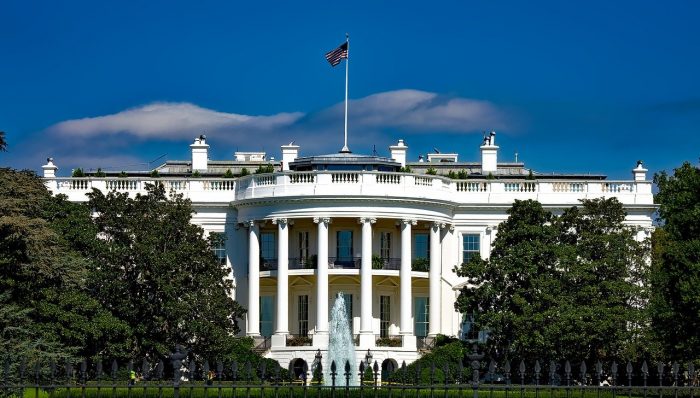Biden Administration Announces Intent to End Public Health Emergency on May 11, 2023


The Centers for Medicare and Medicaid Services (CMS) has released a new Frequently Asked Question (FAQ) document that addresses how their review contractors (Medicare Administrative Contractors, Recovery Audit Contractors, and the Supplemental Medical Review Contractor) will conduct medical reviews after the COVID-19 public health emergency (PHE). Read the FAQ here.
This week, the Centers for Medicare & Medicaid Services (CMS) announced the Calendar Year 2023 Physician Fee Schedule (PFS) final rule. The final rule includes several National Council and RCPA recommended priorities. These are wins for mental health and substance use care organizations that will help expand access to care by strengthening the workforce.
RCPA recommends members review this 2023 Physicians Fee Schedule Final Rule Summary for impacts on your agencies practice and/or policies.
Key Highlights:
The Final Rule, in alignment with the Consolidated Appropriations Act (CAA) of 2022, implements an extension of a number of flexibilities for a 151-day period after the expiration of the Public Health Emergency (PHE), which is set to expire on January 11, 2023.
In the event of further extensions of the federal PHE, we will communicate this info to members. Under the current timeframe for PHE continuation, states must be notified by November 11, 2022.
We thank our members and Steering Committees for their guidance, recommendations, and support through the review process. If you have any questions, please contact your respective RCPA Policy Director.
On August 4, 2022, the Biden administration declared monkeypox a public health emergency. Since then, every state and Washington, D.C. has recorded cases of the virus. As of September 20, 2022, the CDC reported 24,203 total confirmed monkeypox cases in the United States. Of those cases, 3 percent, or 708 total, were reported in Pennsylvania.
To raise awareness of the epidemic, the Pennsylvania Department of Human Services approached the Jewish Healthcare Foundation’s Aging Team, which operates the State’s Learning Network, who coordinated just-in-time learning for all long-term care and community programs across Commonwealth. The PA Department of Human Services and PA Department of Health presented “Monkeypox: What You Need to Know” on August 31.
The Centers for Medicare and Medicaid Services (CMS) has released a Request for Information (RFI) that seeks public input on accessing healthcare and related challenges, understanding provider experiences, advancing health equity, and assessing the impact of waivers and flexibilities provided in response to the COVID-19 Public Health Emergency (PHE).
The Make Your Voice Heard: Promoting Efficiency and Equity Within CMS Programs RFI furthers CMS’ commitment to engaging and learning from partners, communities, and individuals across the health system to inform how we can better support the populations we serve. In alignment with Executive Order 13985, Advancing Racial Equity and Support for Underserved Communities Through the Federal Government, the CMS Strategic Plan Pillar: Health Equity, and the CMS Framework for Health Equity (2022–2032), this RFI aims to gather feedback and perspectives related to challenges and opportunities for CMS to embed health equity into their efforts encouraging innovation, reducing burden, and creating efficiencies across the healthcare system.
CMS is seeking to better understand individual and community-level burdens, health-related social needs, and opportunities for improvement that can reduce disparities and promote efficiency and innovation across programs. CMS is requesting information related to strategies that successfully address drivers of health inequities, including opportunities to address social determinants of health and challenges underserved communities face in accessing comprehensive, quality care. For example, challenges accessing care may include understanding coverage options, receiving culturally and linguistically appropriate care, accessing oral health services, and accessing comprehensive and timely healthcare services and medication.
Through this RFI, CMS also seeks to better understand the factors impacting provider wellness and learn more about the distribution of the healthcare workforce. CMS is particularly interested in understanding the greatest challenges for healthcare workers in meeting the needs of individuals, and the impact of CMS policies, documentation, and reporting requirements, operations, and communications on provider experiences.
Comments received in response to the Make Your Voice Heard RFI will be used to identify opportunities for improvement and to increase efficiencies across CMS programs. In addition, CMS hopes to learn how specific programs have benefited providers, practices, and the people served.
CMS encourages comments from all interested stakeholders, in particular, patients and their families, providers, clinicians, consumer advocates, and healthcare professional associations. CMS also encourages comments from individuals serving and located in underserved communities and from all CMS stakeholders serving populations facing disparities in health and healthcare. The RFI is open for a 60-day public comment period.
Comments must be received by November 4, 2022, to be considered.